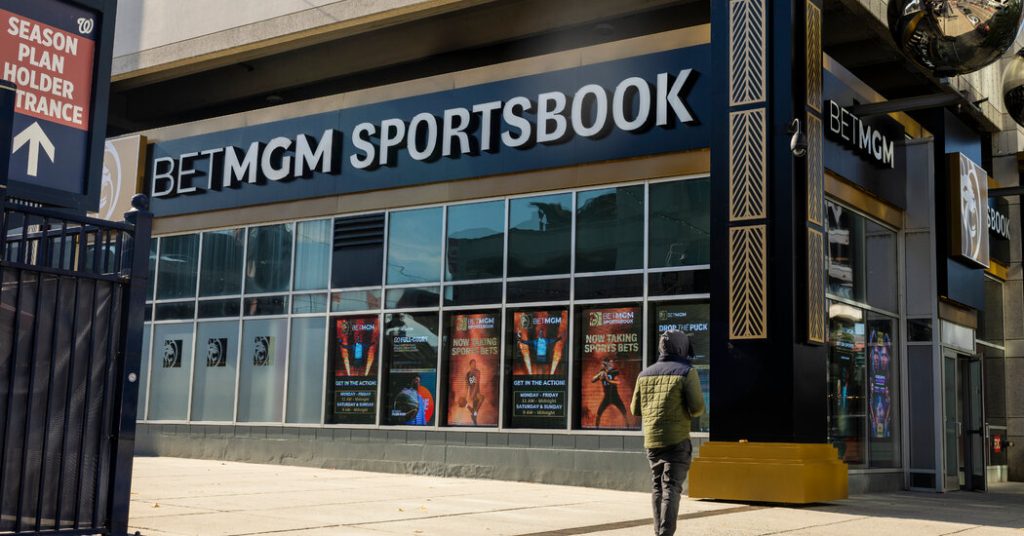In the upcoming N.C.A.A. tournament finals, the best men’s and women’s college basketball teams will compete in high-stakes games that are highly anticipated by fans. These events are also some of the most lucrative for sports betting apps, with Americans expected to wager nearly $3 billion during March Madness. This surge in sports betting is a result of the 2018 Supreme Court decision that struck down a federal ban on sports betting, allowing 38 states and the District of Columbia to legalize gambling on games. This decision has enabled a big industry to market sports betting apps and attract more people to gamble through advertising.
The Supreme Court’s interpretation of the First Amendment to protect advertisements has allowed companies to market legal products, including sports betting, to consumers. This legal paradigm emphasizes that consumers should have the freedom to make informed decisions about legal activities without government intervention. While there are limits to advertising, such as prohibitions on deceptive or misleading content, the rulings have essentially allowed for the mass marketing of products that are legal. Exceptions to this include tobacco, where companies have agreed not to advertise as part of a legal settlement. The consequences of legal sports betting include an increase in tax revenue for governments and consumer protection from fraud, but also an increase in gambling addiction and potential harm to the integrity of sports competitions.
The rise in sports betting has led to issues such as prop betting, where fans and athletes place bets on specific outcomes within games. This has resulted in threats to players who do not meet predictions and concerns about athletes betting on themselves and potentially manipulating game outcomes. For example, N.B.A. player Jontay Porter has been accused of self-dealing in relation to prop betting. Furthermore, gambling-related scandals, such as the recent scandal involving baseball superstar Shohei Ohtani’s former interpreter allegedly stealing millions to pay for bets, have highlighted the negative consequences of legal sports betting. As sports betting continues to grow, these issues are likely to become more common, and lawmakers are limited in their ability to regulate the industry due to Supreme Court rulings.
In the latest news, the ongoing Israel-Hamas conflict has resulted in calls for a crossing to increase humanitarian aid to northern Gaza, with President Biden threatening to make U.S. support conditional on civilian protections. Former President Donald Trump has urged Israel to quickly end the war, while Benny Gantz has called for early elections in Israel in September. In other international news, Scotland experienced a disastrous event that led to the emergence of a budding star, and the Paris Olympics this summer will showcase the overlap between fashion and sports. In sports news, the women’s Final Four in college basketball is set to begin, with Iowa and Caitlin Clark leading the way alongside undefeated South Carolina. Additionally, the N.C. State women’s and men’s basketball teams have both reached the Final Four, and the cost of attending the women’s NCAA championship game is close to $1,000.


